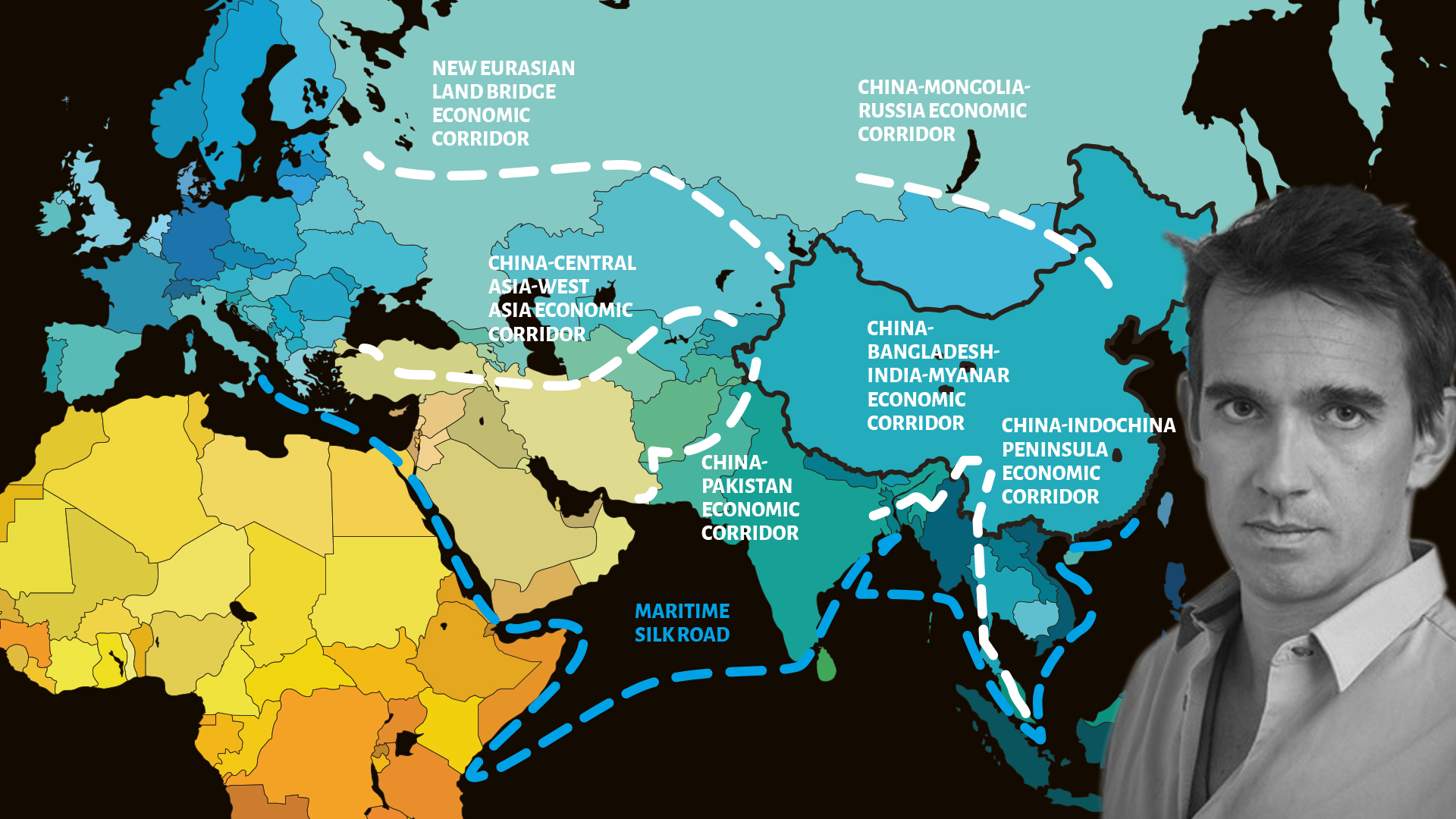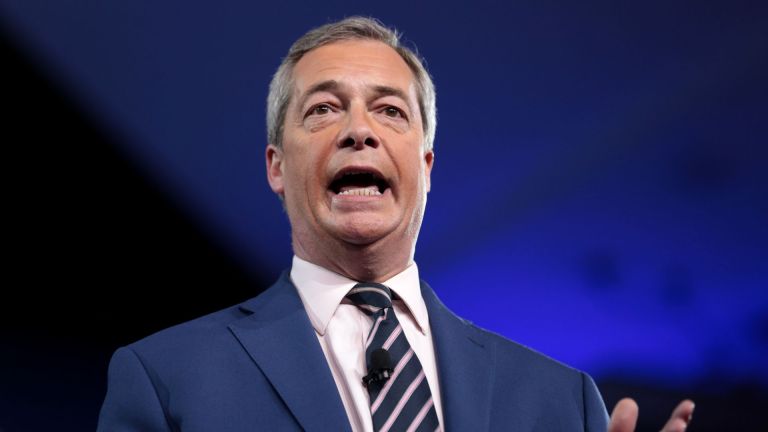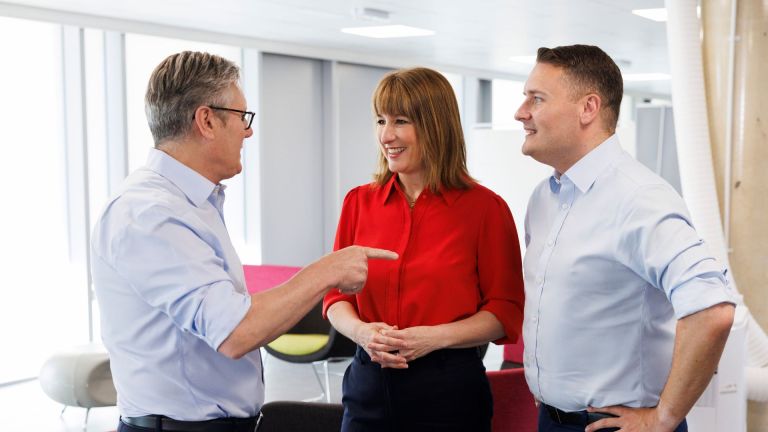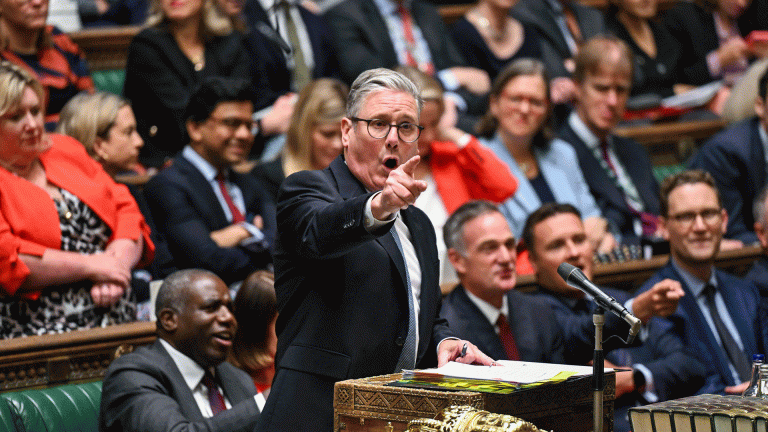We expect people to learn our language and all about us but we’re not very good at learning about others. You fall behind. Winners write history and if you don’t pay attention to the fact that we are part of a big global story then you create pockets where people are insistent that the way they think about the past or the present is right because it’s all they’ve ever known.
The old saying goes ‘all roads used to lead to Rome’. Why do you argue that today, all roads lead to Beijing?
When China joined the World Trade Organization in 2001 its GDP it was worth a trillion dollars. Now, 18 years later, it’s worth 14 trillion dollars. Basically, in the last 17 years the Chinese economy has multiplied 14 times and over the same period there’s not been even a tenth of that in any of the developed economies. That enormous economic growth is unprecedented.
What happens to Brexit is completely meaningless in the grand scheme of things
It is able to influence countries all around the world, not just its neighbours but in Africa and the Americas. China has a geostrategic plan about what it thinks it needs and what it thinks it can do.
For that reason, the decisions made in Beijing, whether they’re good or bad, have massive consequences and impacts and to be perfectly honest, what happens to Brexit is completely meaningless in the grand scheme of things.
I know that comes as a real shock to us here in the UK, but 99 per cent of the world’s population won’t have their lives changed whether we’re in or out of the European Union or on what terms.
Advertising helps fund Big Issue’s mission to end poverty
While we obsess over Brexit, what more significant events are taking place?
There are so many global flashpoints right now: between Iran and Saudi Arabia, India agitating towards both Pakistan and China, China is on the move in the South China Sea and beyond. Who knows what Trump might try to do next. We’re all on quite thin ice, but the most important thing about thin ice is that as long as you get off it before you fall in, then you’re fine!
In recent years, why has isolationism been the aim of the UK and US, while China is reaching out to other countries?
There are two competing models being offered in today’s world. One, offered by the United States talks about America First, and therefore everybody else second. We’ve all been brought up to think the US is the protector of the free world, the aspirational democratic model for all societies.
It is turning in on itself and becoming a kind of high school bully. That may well be for America’s benefit, but it’s more complicated for other people in other parts of the world.
Meanwhile, China is talking consistently about improving ties, working together, win-win scenarios… Yet underneath the bonnet that’s also much more complicated than it sounds. A lot of the countries that China has been working with are really struggling with debts that they’ve got with Chinese investments.
Advertising helps fund Big Issue’s mission to end poverty
For other states which aren’t as powerful politically, economically or militarily, you have to make a choice between the US and China. That’s going to be an ongoing theme not just for 2019 but into the future.
If China is emerging as the one real superpower, why are we fixated on Russia’s machinations?
Russia understands this giant game of chess and is playing it quite aggressively. There are leaders from Russia and the Middle East and South Asia talking to each other. Moscow realises that the only way it can keep up is to have a seat at the table. Conversely, in Europe, we have given that all up. There’s not a single leader that we like east of Greece; we don’t like Erdoğan in Turkey, we don’t like Putin, the Saudis, Iran, Pakistan, Modi in India. We don’t like China – we don’t like anybody!
What are the consequences of that?
Here in Europe, we’re in a big bubble where we sit and complain about other parts of the world without considering how we look from outside. When the Champs-Élysées is on fire, when we have highest levels of homelessness more or less in the world, where we have 20 per cent of children brought up in food poverty, we look less like a model that deserves to be replicated.
In China, for example, 800 million people have come out of poverty in the last 30 years. In fact, if you are born in the bottom fifth of the society economically in Kazakhstan or Sierra Leone, you and your family have a better chance of getting out of there over the course of your lifetime than if you’re born in the UK. That tells us an enormous amount about what it is we need to do better in the United Kingdom.
Advertising helps fund Big Issue’s mission to end poverty
Are you optimistic about the new year?
Wherever you look in the world right now, you fear for 2019. I don’t think there’s a single country, a single region, a single leader that thinks 2019 is going to be a year of happiness and celebration. 2019 is all about survival. Survival is highly underrated. We are used to a world where we go on nice long holidays and think that we’re going to be happier every single year.
But as people involved with The Big Issue know, survival is a huge skill in itself. There’s a real need to be able to weather through whatever life throws at you and just keep on going, hoping one day things get better. We always think that we’re helping people who are homeless but actually sometimes it’s the other way around. We can learn from the resilience that’s required to be able to keep on going regardless.
Peter Frankopan is Professor of Global History at Oxford. The New Silk Roads: The Present and Future of the World is out now (Bloomsbury, £14.99)










